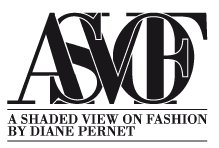
Dear Shaded Viewers,
With today’s launch of “Dark Heart Beating” I had the opportunity to sit down with John Paul Pryor and Jez Leather.
The Sirens of Titan is a relatively new band, can you tell me more about your background?
John-Paul: The thing I guess I have always connected with more than anything is music and literature. I’m not saying I’m super well read, but I think The Sirens of Titan as a band does kind of reflect the kind of books I love. I enjoy Kurt Vonnegut, from where we take our namesake, but also Atwood, Burroughs and that kind of thing, and the poetry of Keats and the Beats. I think all of that is part of my background, if you like, or it all certainly shaped my consciousness, just as much as albums like Let It Bleed, and artists like Gil Scott Heron. I do think music is a universal language that can transcend so many kinds of divisions – it can be cathartic emotionally, and it can heal. I like to think some of my songs might help someone get through something, or become an emotional touchstone – that is the most you can hope for as any kind of artist I suppose, and I guess desire to connect comes from something in my past, but I could not say what.
Jez Leather: Well, I’m no stranger to being in bands named after novels, I formed a band called Molloy while living in Paris, back in the day, a nod to Samuel Beckett’s situation when he wrote it, and I adore Kurt Vonnegut, so it’s no surprise I ended up being part of The Sirens of Titan. But yeah, music is my biggest love, and I love searching out new music through connections from other bands and artists that I love, and stitching them together to create an ever growing tapestry from which to find comfort and share with others.
Your music is a blend of different genres. How do you approach incorporating these different influences into your work?
John-Paul Pryor: That is really the musical marriage of the two of us, and the band also brings so much talent and creativity. Jez is kind of like a walking musical encyclopedia, and I think we just always kind of chime together, and have a similar idea of what good music is about. I mean, I’ll often come with the song, and then Jez will be more about the arrangement. I don’t know, we both play a role in that vibe, but it’s not very conscious. I suppose we will often be talking about making a guitar sound more Marc Bolan-esque, or something like that, or giving a song more ‘menace’ – I mean it’s pretty abstract how it works.
Jez Leather: Yeah, it’s all about the menace with JP, ha! Even though JP and me grew up in different cities, when we finally met through mutual friend Sami Salo, an integral part of the original Sirens family, we found we had been listening to a lot of the same records and going to see the same bands as kids. This made it so easy to understand each other when writing together. I mean, there’s only a handful of people I can think of that would understand the reference when one of us says that a guitar part should be more “Jo Dog”. I absolutely love mixing influences and combining them to create an unexpected marriage of styles. Also, I’m an analogue synth freak, so if JP suggests we need a spacey Floyd sound on a middle eight, my eyes light up, and he knows I’ve got the perfect sound ready to go.
Would you consider The Sirens of Titan as a “post-punk revival” band? Can you tell me more about what that means and how the band is updating and building upon the legacy of post-punk pioneers from the late 70s and 80s?
John-Paul Pryor: I think of the band really as a kind of window to all the musical influences people seem to hear in there. In terms of revival of post-punk, yeah, maybe a little, but it is and unconscious drive if it’s there – people have definitely spoken about the band in that vein before. I guess all music build upon a legacy, but we are definitely people with pretty expansive record collections, so we could certainly be said to be trying to carry a torch of tradition from the likes of Scott Walker, or The Bad Seeds, who we both love.
Jez Leather: Yeah, I’ve never looked at the band as post punk particularly because I associate post punk with a certain austere and direct musicality, whereas, if we were given the budget, we’d stick an orchestra on every other song! But now you mention it, I can see how a lot of our influences would fit into that genre, and how we deliver the songs live really plays up to that.
John-Paul, your lyrics often deal with themes of love, loss, and self-discovery. Can you talk about how you draw inspiration from these experiences and emotions?
John-Paul Pryor: Everything comes from experience, and I think loss is absolutely at the core of existence. We are not kids by any stretch of the imagination, and I have loved and lost, as we all do in this life, in various ways. I’m always kind of reaching for something lyrically, but I am never sure I reach it … I tend to draw inspiration from break-ups, or even friends who have passed on far too early. In terms of self-discovery, I have always been interested in the ephemera of various religions, and I think I do believe in karmic return, and that whole Buddhist notion of doing no harm. In my life as an editor, I have had the great fortune to interview everyone from Buddhist gurus, to Hollywood stars and counter culture icons, such as Yoko Ono and Marianne Faithful. I think we take things from all these encounters, and we all then carry a little bit of that moment or meeting with us, so that can be inspiring, but, equally, one can be inspired by a snatch of conversation overheard on a train. To me, songwriting is all about drawing your map of being from the collective consciousness.
“Dark Heart Beating” is a haunting and evocative single that showcases The Sirens of Titan’s unique sound. Can you walk me through the creative process behind the song – how did the band come up with the lyrics and instrumentation?
John-Paul Pryor: The song sort of evolved or changed during the lockdown, and I think personally it became about this thing of trying to both explore and expel darkness and negativity. The characters in the song are kind of a yin and yang in my mind, or male and female entities in conflict, and maybe there is a sense in there that we damage each other when we are in love, or in any kind of desire, and freedom from that attachment can elevate our karmic return in the next life. That notion of a dark heart beating is kind of that voice of negative reinforcement we all have, or being drawn in the wrong direction in terms of karma. I don’t know if that would make sense to anyone else, though, really.
Jez Leather: Musically it evolved from experimenting with JP’s acoustic guitar and my pedal steel all finding their own space to complement each other, then finding the perfect accompaniment of drums, bass and sax – a pretty organic process, and always a lot of fun!
What were the key influences behind the song – both musically and thematically?
John-Paul Pryor: Probably the key influence for me was depression, and also this sense of feeling trapped. The idea of someone deliberately doing harm, or being devoid of compassion – I actually see that around me in people, and it makes me sad. I do think we are not terribly awake as a species spiritually.
Jez Leather: And music-wise, we saw it as an almost Lynchian soundtrack evoking sand and cacti, the shimmering guitar sound mirroring the heat haze, a hint of Tijuana Brass and the backing chants which undulate between sweet and menacing. There’s a lot going on.
Many new bands struggle to make a name for themselves in today’s crowded musical landscape. What do you think The Sirens of Titan are doing differently, and what potential do you see for them to make a lasting impact on the scene?
John-Paul Pryor: To be honest, in the avalanche of consumer culture I just hope it connects with some people. I don’t know what we are doing differently, other than that maybe we are more interested in creating in the studio than playing a live circuit per se. We are playing over the summer, but with some interesting poets and so on, such as the guys at New River Press. I would like to think we could create a few happenings, where people can unplug from the matrix to actually share a moment. Whether we make any impact, I guess that is for us to find out.
How has your music evolved over time, and where do you see it going in the future?
John-Paul Pryor: I am sure Jez will have a better answer for this, but some of the forthcoming album does get pretty far out, as people will see when it is released later in the summer. I do see us going further with that. We would love to score a film, or two, as we are super interested in making films with the songs. One thing that has definitely evolved is that we really went for full-on 70s production values on this record, and stepped further away from our acoustic roots. It has a bombastic feel, and maybe in the future we’ll go more epic, and experimental. That’s a bit of a trope, I suppose, but that is what I perceive as our journey.
Jez Leather: The longer we’ve played together, the more focused we’ve become, but at the same time, we’ve focused on a wider horizon where we feel everything is possible. So yeah, it’s hard to pinpoint where it will go in the future, but like JP says, scoring films is a major possibility and ambition. But concentrating on the now, I’m super excited to be playing these songs with our amazing band, and seeing where their influence may lead us to in the future.
Thank you both.
Later,
Diane

